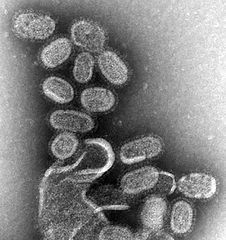Jan 31, 2008
Promising Anti-Radiation Drug Based on Carbon Nanotubes
Posted by Michael Graham Richard in categories: defense, military, nanotechnology, nuclear weapons
The Defense Advanced Research Projects Agency (DARPA) gave a $540,000 grant to researchers from Rice University to do a fast-tracked 9-month study on a new anti-radiation drug based on carbon nanotubes:
“More than half of those who suffer acute radiation injury die within 30 days, not from the initial radioactive particles themselves but from the devastation they cause in the immune system, the gastrointestinal tract and other parts of the body,” said James Tour, Rice’s Chao Professor of Chemistry, director of Rice’s Carbon Nanotechnology Laboratory (CNL) and principal investigator on the grant. “Ideally, we’d like to develop a drug that can be administered within 12 hours of exposure and prevent deaths from what are currently fatal exposure doses of ionizing radiation.” […]
The new study was commissioned after preliminary tests found the drug was greater than 5,000 times more effective at reducing the effects of acute radiation injury than the most effective drugs currently available. […]
The drug is based on single-walled carbon nanotubes, hollow cylinders of pure carbon that are about as wide as a strand of DNA. To form NTH, Rice scientists coat nanotubes with two common food preservatives — the antioxidant compounds butylated hydroxyanisole (BHA) and butylated hydroxytoluene (BHT) — and derivatives of those compounds.
Continue reading “Promising Anti-Radiation Drug Based on Carbon Nanotubes” »
 What would make this new vaccine different from the ones already available is that it would target M2e, a conserved region of influenza “A” strains. Since that part doesn’t constantly mutate and about 2/3 of seasonal epidemics and all pandemics are due to type “A” strains, it could be a very efficient weapon against repeats of the “Spanish Flu” (1918−1919) that killed at least 50 million people worldwide. Only the future will tell if phase II and III trials are successful.
What would make this new vaccine different from the ones already available is that it would target M2e, a conserved region of influenza “A” strains. Since that part doesn’t constantly mutate and about 2/3 of seasonal epidemics and all pandemics are due to type “A” strains, it could be a very efficient weapon against repeats of the “Spanish Flu” (1918−1919) that killed at least 50 million people worldwide. Only the future will tell if phase II and III trials are successful. 







